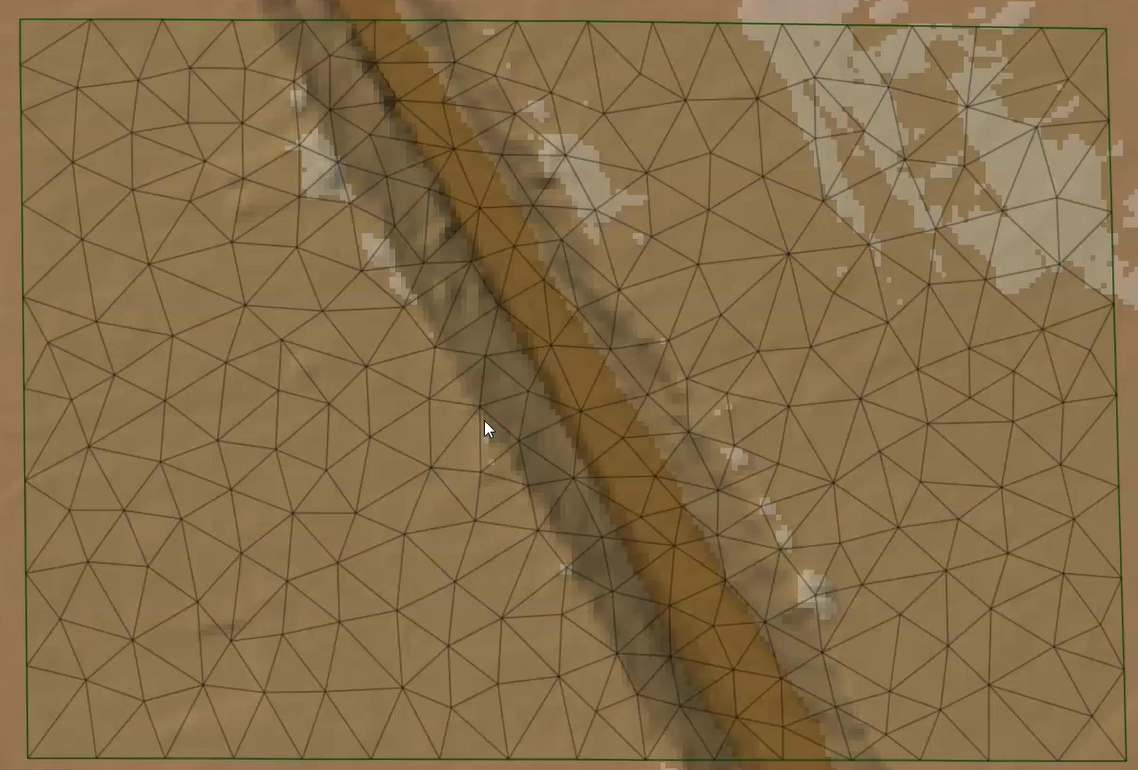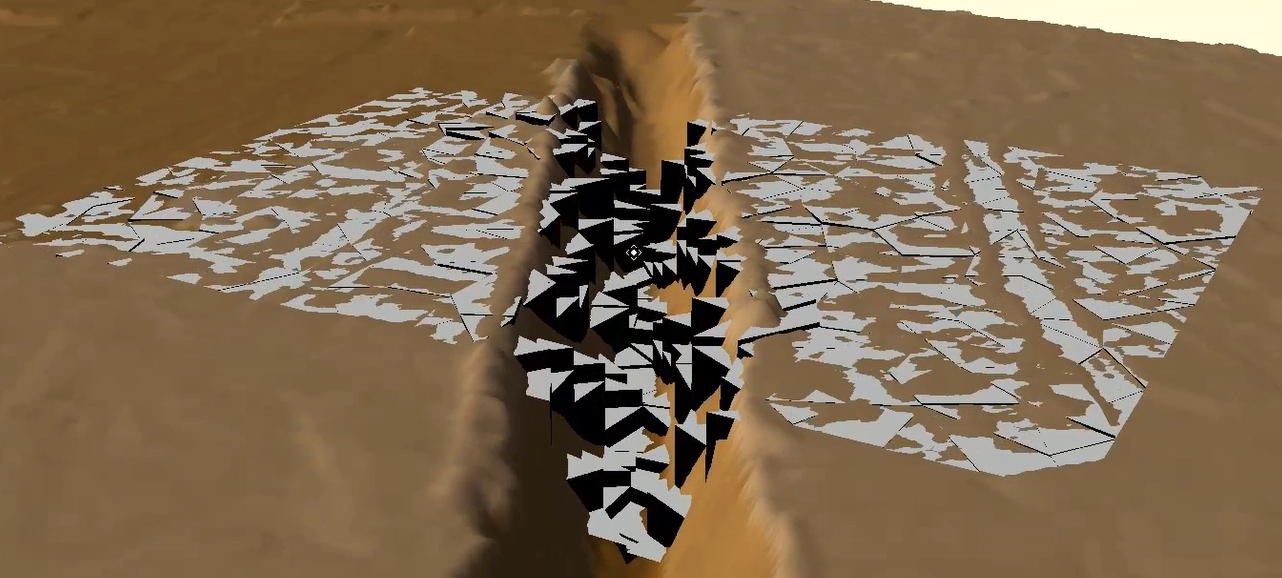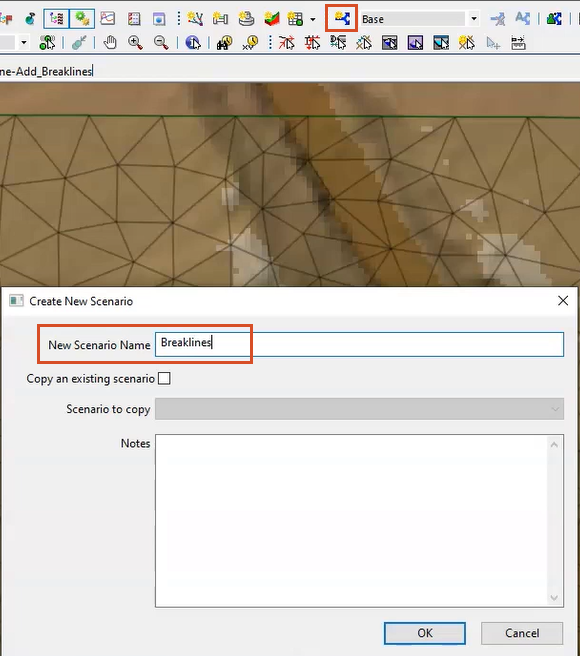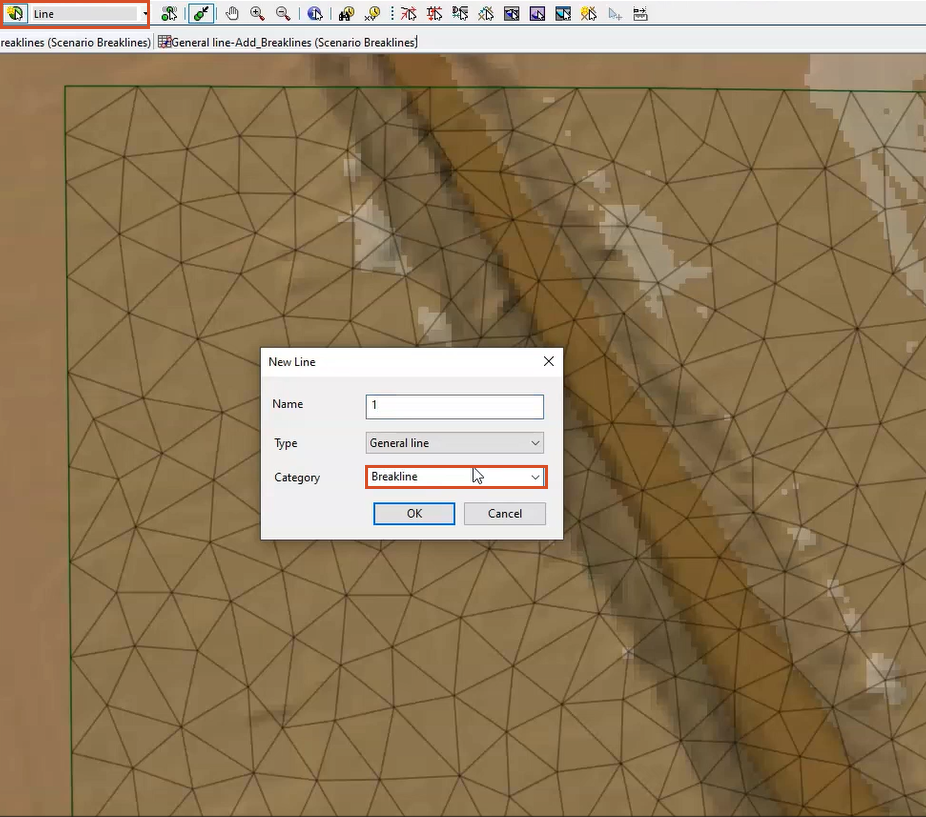& Construction

Integrated BIM tools, including Revit, AutoCAD, and Civil 3D
& Manufacturing

Professional CAD/CAM tools built on Inventor and AutoCAD
Force triangle edges along a given line and ensure accurate ground model levels by adding breaklines.
Breaklines are used to force triangle edges along a given line. These can be used to enhance the detail of the mesh, or to ensure that the ground model topography is represented more accurately by the mesh.
Breaklines can help pick out the tops of embankments or the bottom of channels. In this example, a mesh has already been generated using the default parameters.

Open a 3D view to compare the 2D mesh to the underlying ground model:

Because elements have a single level applied, breaklines can be used here to help create a more representative mesh by forcing how the elements are created.
Start by creating a new scenario:

Now, add some General line objects to help pick out the topography more accurately. For this example, add a pair of general lines at the top and bottom of the channel to help with the mesh creation:

When creating only a few lines, the category can be assigned manually. However, if importing numerous breaklines, either set the category during the import process or update the category in the line grid window.

With all breaklines added as general line objects and assigned the same category, re-mesh the 2D zone:

The breakline is used to determine the boundary of the adjacent mesh elements, and the mesh lines up with the breaklines.
For a better understanding of the impact the breaklines have on 2D element levels, view the results in 3D:

The bottom and top of the channel are now more accurately represented, which leads to more accurate results.